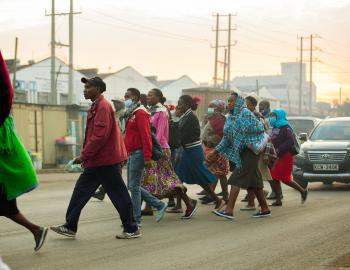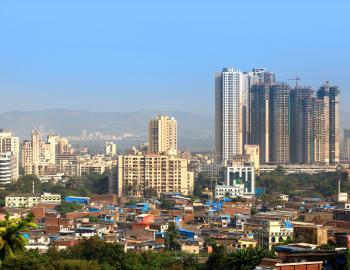WORKING PAPER: The local business case for climate action
WORKING PAPER: The local business case for climate action
Cities are responsible for up to 70% of global greenhouse gas emissions, therefore climate change needs to be resolved in cities. There is an important window of opportunity to help cities, especially in rapidly urbanising developing countries, to better manage their future growth and development. Cities need to incorporate climate change measures and adaptation into the way they develop, before they become locked into unsustainable patterns of growth. Through coordinated and targeted climate action, cities can strengthen their resilience to the impacts of climate change.
City governments need to address multiple challenges and pressing local issues, such as basic service delivery, housing, employment and education. Ensuring that responses to these issues are climate compatible can help to address the immediate needs of the population, whilst also directing finance for long-term climate adaptation and / or mitigation. Access to finance is not without its challenges and is not the only constraint to climate action in cities. In order to advance climate action, there are a number of fundamental barriers which impede commitment to climate action. These include, but are not limited to, political will, effective governance, institutional capacity, access to knowledge and resources.
There are a growing number of research papers, books and articles that seek to measure the benefits of climate action in cities. These are contributing to closing the information gap for decision-makers on the case for climate action. However, more information is needed to prove the case for embedding climate action into urban planning and development decisions. More information is also needed on the different levers that could help more city-level climate projects to scale-up and be rolled out to other cities. Understanding these factors more clearly could help accelerate climate compatible investment and enable city decision makers to develop, integrate and prioritise climate solutions across their development and investment strategies.
Drawing on CDKN’s experience of working with a wide range of cities, this working paper by Zoe Green, Lizzy Fitzgerald and Connie Norton of PwC identifies five levers of effective climate action in cities that climate change practitioners should be aware of, and where appropriate, build into their project approach to support more effective climate action in cities. The five levers are:
- Power and leadership
- Communications and engagement
- Capacity building
- Financing implementation
- Demonstration effect
Download the full working paper at right.



